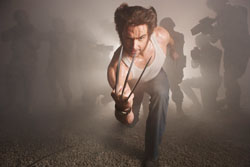Superman, the first comic book superhero, was created in 1938, at a time of global anxiety as the world marched towards war. In the years that followed he was joined by a pantheon of other heroes. Some, like superman, were literally out of this world. Others were men and women transformed through accident and circumstance into gifted beings. While their capabilities varied, their mission was fairly similar; fight crime, protect the innocent.
The inevitable journey from page to cinema screen has given comic book superheroes another audience. While the cynical may find the characters ridiculous and the morality simplistic (or even opportunistic), there is something in the good versus evil narrative that appeals to many of us.
Superheroes as messiah figures
The connection between superheroes and Christ has been long observed. In both print and on the screen, Superman, with his dual personhood, is a typical redeemer figure. The only son of Jor-El, Kal-El (later Clark Kent / Superman) is sent to earth for the sake of humanity.
In a study of comic book heroes and religious symbols, Bruce David Forbes, Professor of Religious Studies at Morningside College in Iowa, US, gave special attention to the portrayal of superheroes and the crucifixion pose. According to Forbes the symbolism is deliberate, a sort of shorthand to depict the battle between good and evil.
"Battles between good and evil, whether on individual or cosmic levels, provide the basic dramatic structure for most superhero tales. Religion provides obviously applicable language and imagery to express such contests between good and evil."[1]

Alienation and the X-Men
While Superman's popularity has waned (until recently) the diverse creatures known as the X-Men have steadily gained a large following both in print and on the screen.
First created in 1963, the X-Men are genetically mutated human beings. These people have special abilities and often physical quirks " excess body hair, wings, strange markings on the skin. With the X-Men narratives the message moves beyond good versus evil, although that certainly plays a part. These stories deal with alienation, what it is to be in the world but not of the world. How should these beings live in a world that fears and despises them?
In a recent article published in Christianity Today, H. Michael Brewer sees parallels between the mutants of the X-Men stories and Christians. Both are "resident aliens'. Both are frequently misunderstood and despised. Both "are always in the world but never of the world".[2]
Despite the suspicion and persecution to which almost all are subject, the mutants are far from unified. Brewer describes four attitudes to the world, pointing out that these approaches have all been implemented by the church at various times.
"¢ peacefully coexisting with the world
"¢ attacking the world
"¢ compromising to fit into the world
"¢ withdrawing from the world
The X-Men is the name given to a special group of mutants trained and educated by Charles Xavier. His vision is for the X-Men to be agents of change.
"Like Jesus, Professor X gathered disciples around him in hopes of creating a better world"”where the strong defend the weak, unique powers are used for the common good, and differences are not only tolerated but celebrated."[3]
However Xavier's notion of how things could be is not shared by all. His colleague, turned rival, Magneto, is determined to wage war against bigoted humanity.
Brewer argues that Christians face a similar challenge to the mutants and often respond in the same way. Some blend in so they are almost indistinguishable from those around them. Others are persecuted and withdraw from the world for self-protection. Some try to live at peace with those around them, helping where they can. Others cultivate the distinction between us and them, taking on the ways of the world wherever possible. According to Brewer, each approach has its positives and negatives.
It's a clever conceit but Brewer is careful not to overstate his case. Christians are not mutants " we aren't born into faith, we must accept Christ's offer of salvation. And there is no X-Men parallel for the method he advocates; a following of Christ's example. Christians have a mission not just to live as best we can in this world but to share the message of Christ's love with those around us; to ask others to become aliens with us as we await our arrival our true homecoming.
ENDNOTES:
[1] Bruce David Forbes, "Batman Crucified: Religion and Modern Superhero Comic Books", WACC (World Association for Christian Communication) [url=http://www.wacc.org.uk/wacc/publications/media_development/archive/1997_4/batman_crucified_religion_and_modern_superhero_comic_books]http://www.wacc.org.uk/wacc/publications/media_development/archive/1997_4/batman_crucified_religion_and_modern_superhero_comic_books[/url]
[2] H. Michael Brewer, "X-Men: In the World, Not of It" Christianity Today posted 23/05/06
[3] H. Michael Brewer, "X-Men: In the World, Not of It" Christianity Today posted 23/05/06























